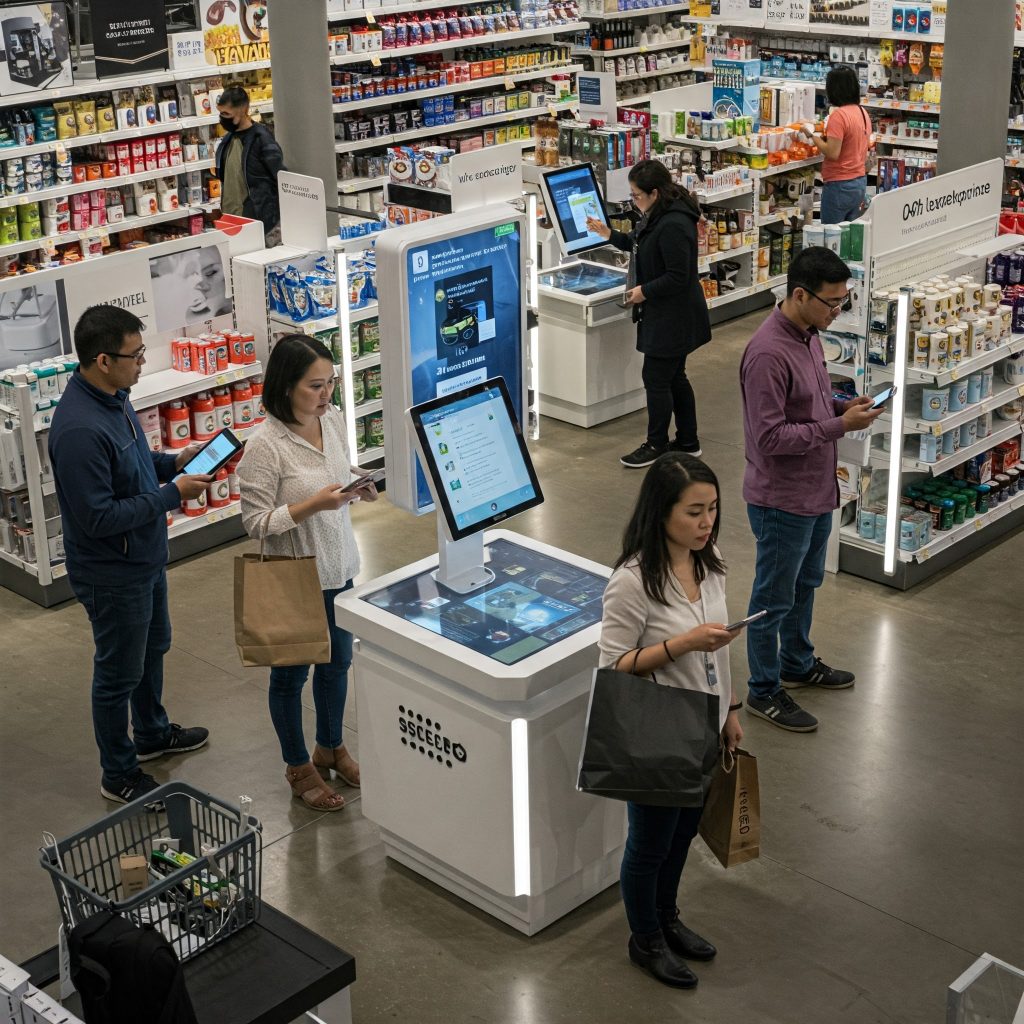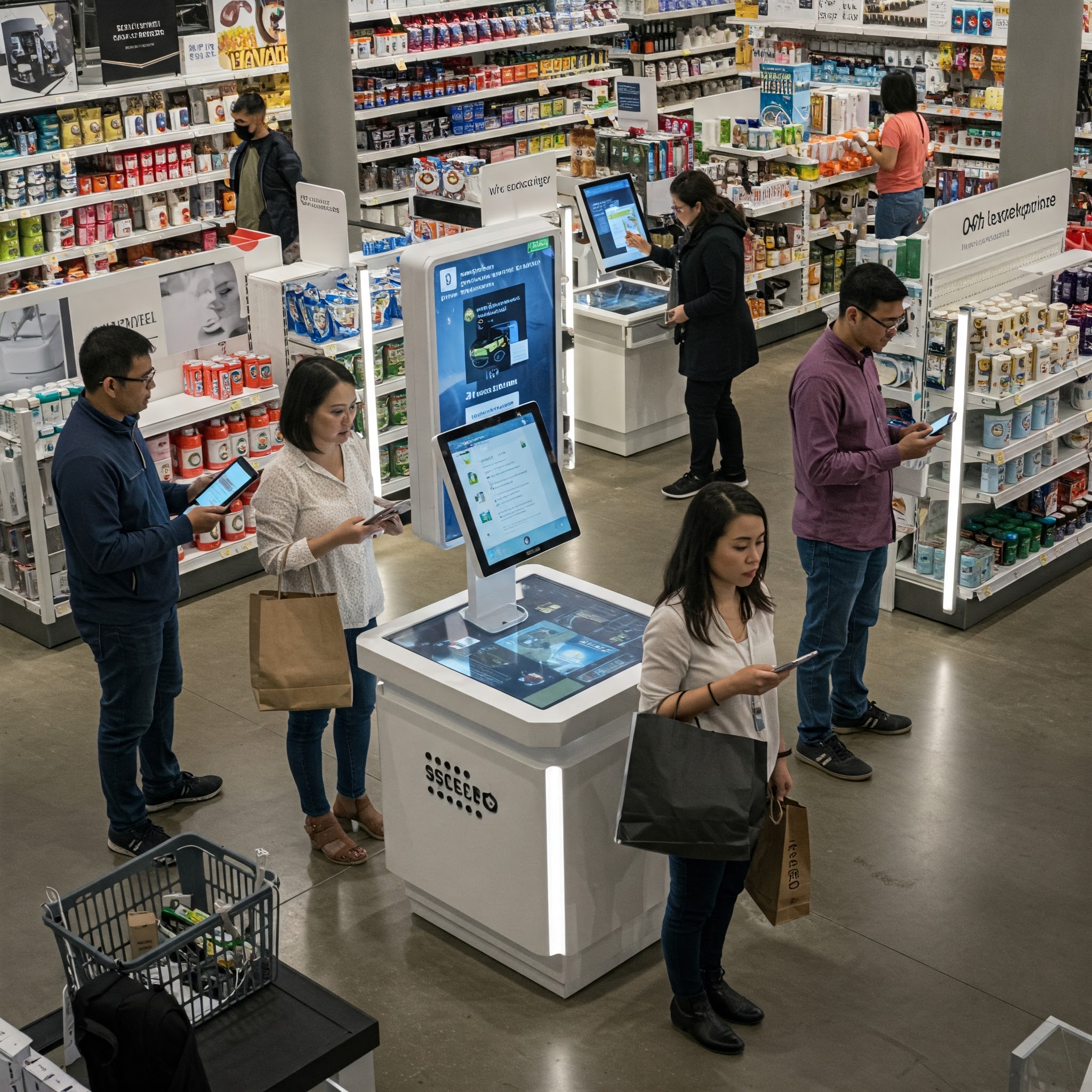The retail technology trends in Houston, like everywhere else, is changing faster than you can say “impulse buy.” Technology isn’t just a shiny new toy anymore; it’s the engine driving the whole shopping experience. From how stores manage inventory to how customers pay for their goods, tech is reshaping retail right before our eyes. So, what are these trends, and how can Houston businesses keep up?
Table of Contents
The Rise of Mobile and Contactless Payments
Remember when you had to dig through your wallet for exact change? Those days are fading fast. Mobile wallets like Apple Pay and Google Pay are becoming commonplace. They offer a quick and convenient way for customers to pay, reducing checkout times and making the whole process smoother. This trend is good news for both shoppers and retailers.
Contactless payments aren’t just about convenience; they also address hygiene concerns. Especially after recent events, people are more aware of the surfaces they touch. Contactless options minimize physical interaction, making shoppers feel more comfortable and safe. It’s a win-win situation. Retailers looking to integrate mobile payment solutions can benefit from expert IT consulting services to streamline the transition.
Personalized Shopping Experiences
Imagine walking into your favorite store, and the staff already knows your preferences. That’s the power of personalized shopping. Retailers are using data to understand customer behavior and offer tailored recommendations. This could be anything from suggesting items based on past purchases to sending targeted promotions.
Personalization isn’t just about sales; it’s about building relationships. When customers feel understood and valued, they’re more likely to become loyal shoppers. Think of it like your favorite barista remembering your usual order. It makes the experience more enjoyable and keeps you coming back for more. Data backup and disaster recovery services can help retailers secure valuable customer insights while ensuring smooth operations.
The Growing Importance of E-commerce Integration
Online shopping is no longer a separate entity; it’s an integral part of the retail ecosystem. Customers expect a seamless experience whether they’re shopping online or in a brick-and-mortar store. This means retailers need to integrate their online and offline channels effectively.
Think about it: have you ever looked up a product online and then gone to the store to buy it? Or maybe you’ve ordered something online and picked it up in person. These are examples of e-commerce integration in action. It’s about providing flexibility and convenience to the customer, allowing them to shop however they want. Businesses can enhance their web and mobile app development strategies to ensure a smooth omnichannel experience.
The Use of Augmented Reality (AR) and Virtual Reality (VR)
AR and VR are no longer science fiction; they’re becoming increasingly relevant in retail. AR allows customers to try on clothes virtually or see how furniture would look in their homes before buying it. VR can create immersive shopping experiences, allowing customers to explore virtual stores from the comfort of their own homes.
These technologies are changing the way people shop. They offer a more engaging and interactive experience, making shopping more fun and less of a chore. Plus, they can help customers make informed decisions, reducing the likelihood of returns. Retailers looking to implement these innovations can leverage managed IT services for seamless tech integration.

Data Analytics and Inventory Management
Behind the scenes, technology is also transforming how retailers manage their operations. Data analytics provides valuable insights into customer behavior, allowing retailers to make better decisions about pricing, product placement, and inventory. This helps them optimize their operations and reduce waste.
Effective inventory management is crucial for any retailer. Technology can help track inventory levels in real-time, ensuring that products are available when and where customers need them. This prevents stockouts and reduces the risk of overstocking. It’s all about having the right product at the right time. Utilizing network design and management services can help retailers maintain a reliable IT infrastructure for inventory control.
The Role of Artificial Intelligence (AI) in Retail
AI is making its way into various aspects of retail, from customer service to personalized recommendations. Chatbots can handle simple customer queries, freeing up human staff to deal with more complex issues. AI-powered systems can analyze customer data to provide personalized product recommendations and targeted promotions.
AI is changing the game for retailers. It allows them to automate tasks, improve efficiency, and provide a better customer experience. While some may worry about robots taking over the world, in retail, AI is more about helping humans do their jobs better. Businesses can optimize their IT support and helpdesk services to integrate AI solutions smoothly.
The Importance of Cybersecurity in Retail
As retailers rely more on technology, cybersecurity becomes increasingly important. Protecting customer data is crucial, not just for compliance reasons, but also for maintaining trust. A data breach can damage a retailer’s reputation and lead to loss of customers.
Retailers need to invest in robust cybersecurity measures to protect themselves from cyberattacks. This includes implementing strong passwords, using encryption, and regularly updating security software. It’s about safeguarding sensitive information and ensuring that customer data remains safe. IT security services can provide the protection needed against cyber threats.
The Future of Retail Technology in Houston
The retail landscape in Houston is constantly evolving. New technologies are emerging all the time, and retailers need to stay ahead of the curve to remain competitive. Embracing these technologies is not just about keeping up with the Joneses; it’s about providing a better customer experience and ensuring the long-term success of the business.
So, how can Houston businesses leverage these retail technology trends? One way is to partner with a trusted IT solutions provider like Nickel Ideatek. They offer a range of retail IT solutions designed to help businesses improve their operations and enhance the customer experience. From point-of-sale systems to e-commerce integration, Nickel Ideatek can help Houston retailers navigate the ever-changing world of retail technology. If you’re looking to upgrade your retail technology, contact them today and see how they can help your business thrive in the digital age.

I recognize the challenges involved in aligning all aspects of your business and bringing your I.T. systems and software up to the desired standard. Not every business possesses the in-house resources necessary for this transformation, and time constraints due to existing workloads further complicate the process.
With over 24 years of experience, I have been effectively managing I.T. solutions for businesses in the Greater Houston Area. My goal is to alleviate the burden of I.T. complexities, allowing businesses to refocus on their core strengths and, ultimately, thrive.

